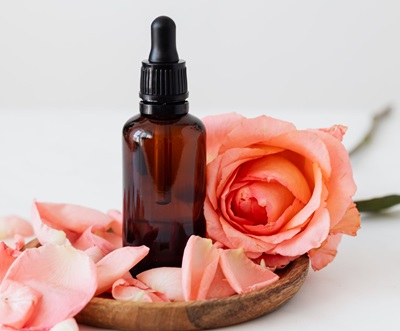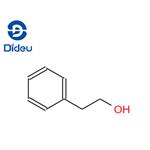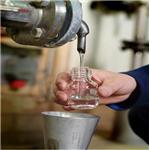Phenyl ethyl alcohol can react with oxidants, and the reaction is very violent, and it can burn when exposed to open flames or high heat.
Phenyl ethyl alcohol is a colorless liquid with a certain floral aroma. It is soluble in water, miscible with alcohol and ether, and can also be dissolved in glycerol. It exists widely and can be found in natural plants such as lilies, jasmine, and roses. When phenyl ethyl alcohol vapor is heated to high temperatures, the pressure inside the container will gradually increase, causing the container to crack or even explode.
Essential oil composition
As one of the main aromatic components in rose essential oil, phenyl ethyl alcohol is a simple aromatic primary alcohol. It is a colorless liquid at room temperature and has an elegant, delicate and long-lasting rose aroma. It is an edible food allowed by my country's regulations. spices. Mainly used to prepare flavors such as honey, bread, peaches and berries. It can also be used to prepare rose-scented essential oils and various floral flavors, and is widely used to prepare soap and cosmetic flavors.

Most phenyl ethyl alcohol is synthesized through chemical pathways using benzene or styrene. There are two methods for large-scale industrial production of phenylethyl alcohol: one is to use benzene and ethylene oxide as raw materials and aluminum trichloride as a catalyst. The second method is to use styrene as raw material, which is converted into epoxybenzene ethane through the halohydrin generation stage, and then hydrogenated using Raney nickel as the catalyst. Since benzene and styrene, the raw materials for the synthesis of linalool, are both carcinogens, the use of chemically synthesized β-phenylethyl alcohol in food flavors and fragrances is strictly restricted.
Phenyl ethyl alcohol is mainly divided into α and β configurations, of which the α configuration is mainly found in cherry, grape, honey and vanilla flavors. β-Phenylethyl alcohol exists in natural rose essential oil. It is an aromatic alcohol with rose fragrance and is widely used. β-Phenylethyl alcohol can be extracted naturally and chemically synthesized by two methods. The current world annual production is estimated to be about 10,000 tons, of which more than 80% of products are prepared through chemical synthesis methods.



